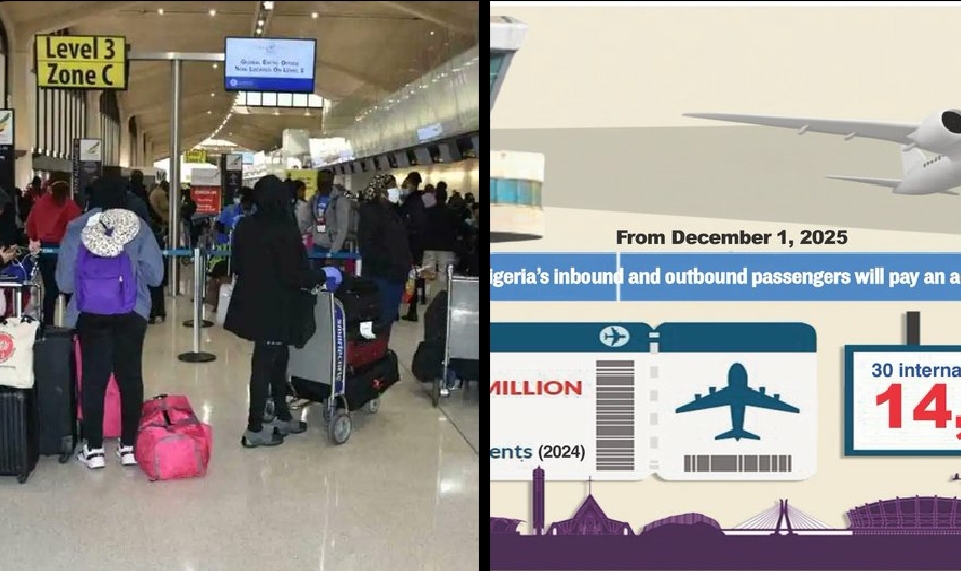

The Nigerian Civil Aviation Authority (NCAA) has officially announced the introduction of a new $11.50 APIS security levy on all international air passengers, effective December 1, 2025, as part of efforts to strengthen border security and enhance passenger data collection.
The levy, tied to the Advance Passenger Information System (APIS) framework, aims to boost intelligence sharing and improve monitoring of cross-border movements through digital pre-screening systems.
Accompanying visuals shared with the announcement show a crowded terminal at Lagos’ Murtala Muhammed International Airport and an infographic detailing the scale of the policy, which affects roughly 4.13 million annual passenger movements handled by 30 airlines across 14,359 international flights in 2024. The measure, according to NCAA officials, is part of broader aviation reforms aligning Nigeria with global standards on data-driven security oversight.
However, the public response has been overwhelmingly critical. On X, thousands of Nigerians voiced frustration, describing the levy as another burdensome tax imposed under an already strained economy. Many commenters linked the move to what they call the administration’s “endless revenue extraction,” pointing out the rising cost of living, high poverty rates, and persistent unemployment as reasons for outrage.
“This government wants to charge us for breathing soon,” one user wrote, echoing widespread anger across social media. Others questioned the transparency and timing of the policy, suggesting it disproportionately affects middle-class travelers and business owners who rely on air travel for work and family mobility.
While aviation authorities insist the levy will “enhance national safety and streamline airport screening,” analysts note that Nigeria already collects multiple aviation-related fees, and this latest charge may further discourage international travel. The rollout on December 1 will be closely watched as the NCAA balances security innovation with public discontent over deepening economic hardship.


